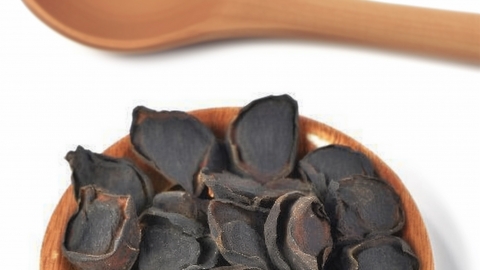What medical conditions can the Chinese herb Hei Shun Pian treat?
Generally, the traditional Chinese herb Hei Shun Pian (black processed aconite root) can treat disorders such as spleen-stomach deficiency-cold, heart-yang deficiency, kidney-yang insufficiency, cold-induced blood stasis, and cold-dampness bi syndrome (painful obstruction syndrome). Detailed explanations are as follows:

1. Spleen-Stomach Deficiency-Cold
Patients with spleen-stomach deficiency-cold often experience cold epigastric pain, preference for warmth and pressure, vomiting of clear fluids, and other symptoms. Hei Shun Pian warms and strengthens the yang energy of the spleen and stomach, restoring normal function and thereby alleviating discomfort caused by spleen-stomach deficiency-cold.
2. Heart-Yang Deficiency
Heart-yang deficiency may manifest as palpitations, chest tightness, shortness of breath, and other symptoms. Hei Shun Pian warms and enhances heart-yang, promoting blood and qi circulation and improving impaired cardiac function caused by heart-yang deficiency.
3. Kidney-Yang Insufficiency
Kidney-yang insufficiency may present with symptoms such as soreness and weakness of the lower back and knees, cold intolerance, frequent nocturnal urination, and others. Hei Shun Pian enters the kidney meridian and has functions of strongly replenishing primordial yang and enhancing the source of fire (yang energy), thus warming and supplementing kidney-yang and restoring normal kidney function.
4. Cold-Induced Blood Stasis
Cold-induced blood stasis may manifest as various types of pain, such as dysmenorrhea, chest obstruction, and limb pain, as well as symptoms like localized cyanosis, swelling, and masses. The warm nature of Hei Shun Pian promotes blood circulation, disperses cold, relieves pain, and resolves blood stasis.
5. Cold-Dampness Bi Syndrome (Painful Obstruction Syndrome)
Invasion of cold-damp pathogenic factors into the channels and joints may easily lead to poor circulation of qi and blood, resulting in pain due to blockage. Hei Shun Pian dispels cold-damp pathogens and promotes the circulation of qi and blood, thereby relieving pain and improving symptoms such as joint pain, limited range of motion, and numbness caused by cold-damp bi syndrome.
Hei Shun Pian is somewhat toxic; therefore, patients should follow medical advice when using it, paying attention to medication safety and contraindications. Rational use based on specific conditions and individual differences ensures safe and effective treatment.




